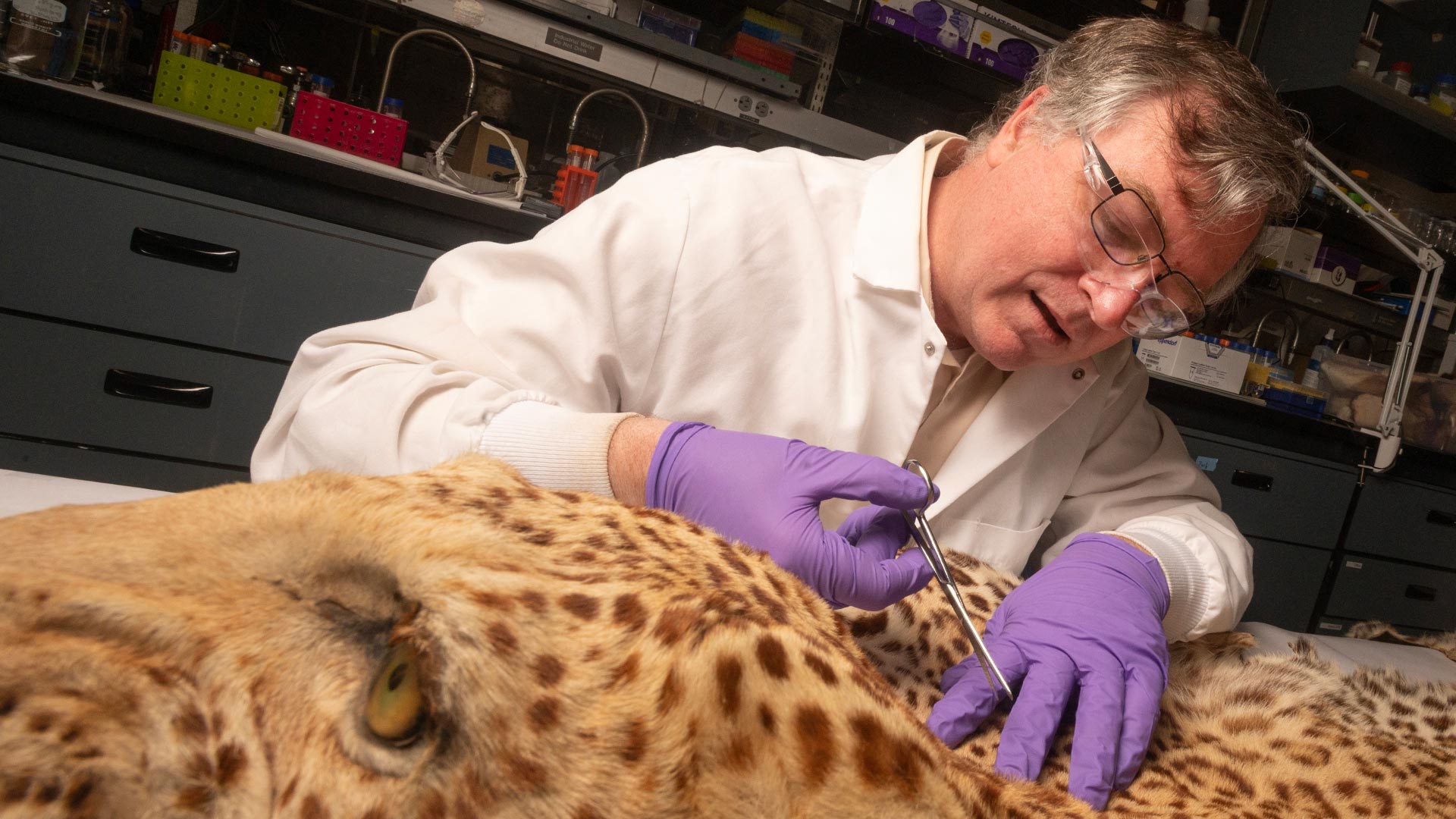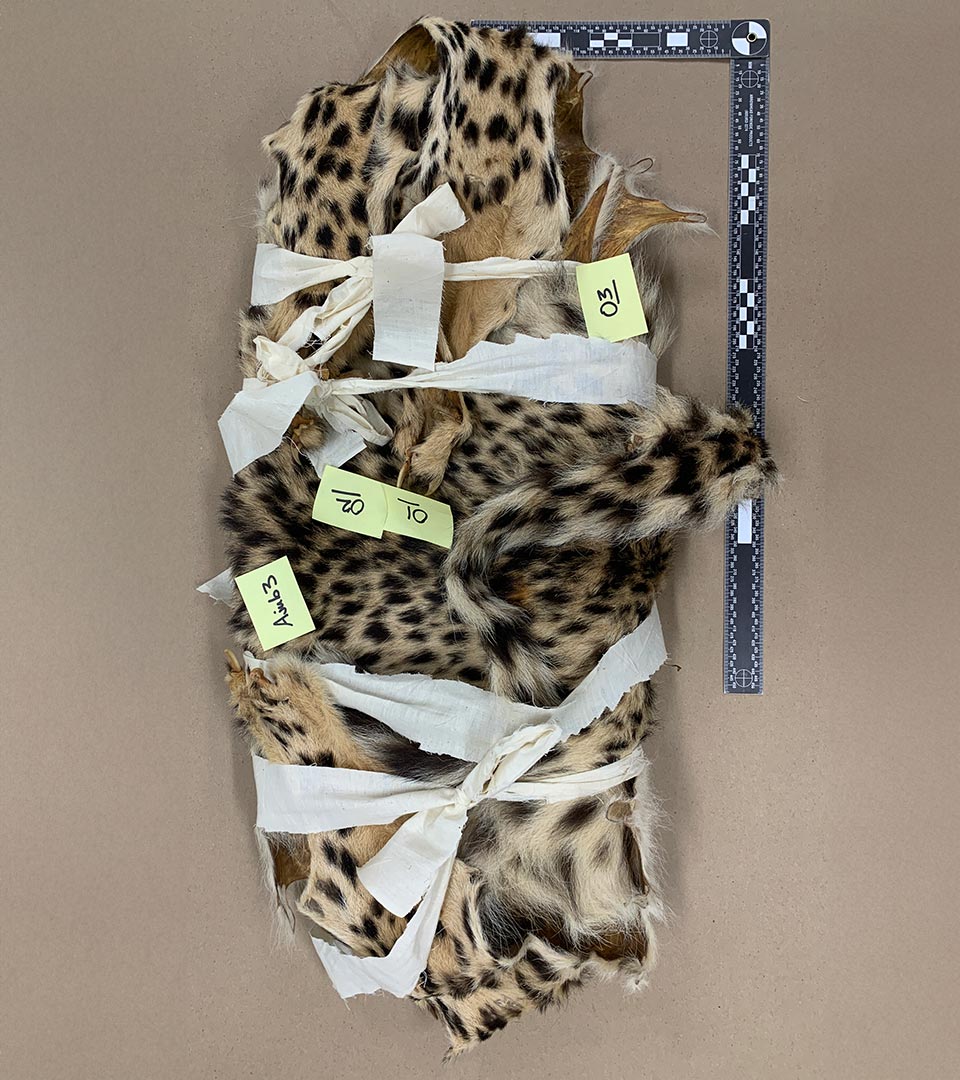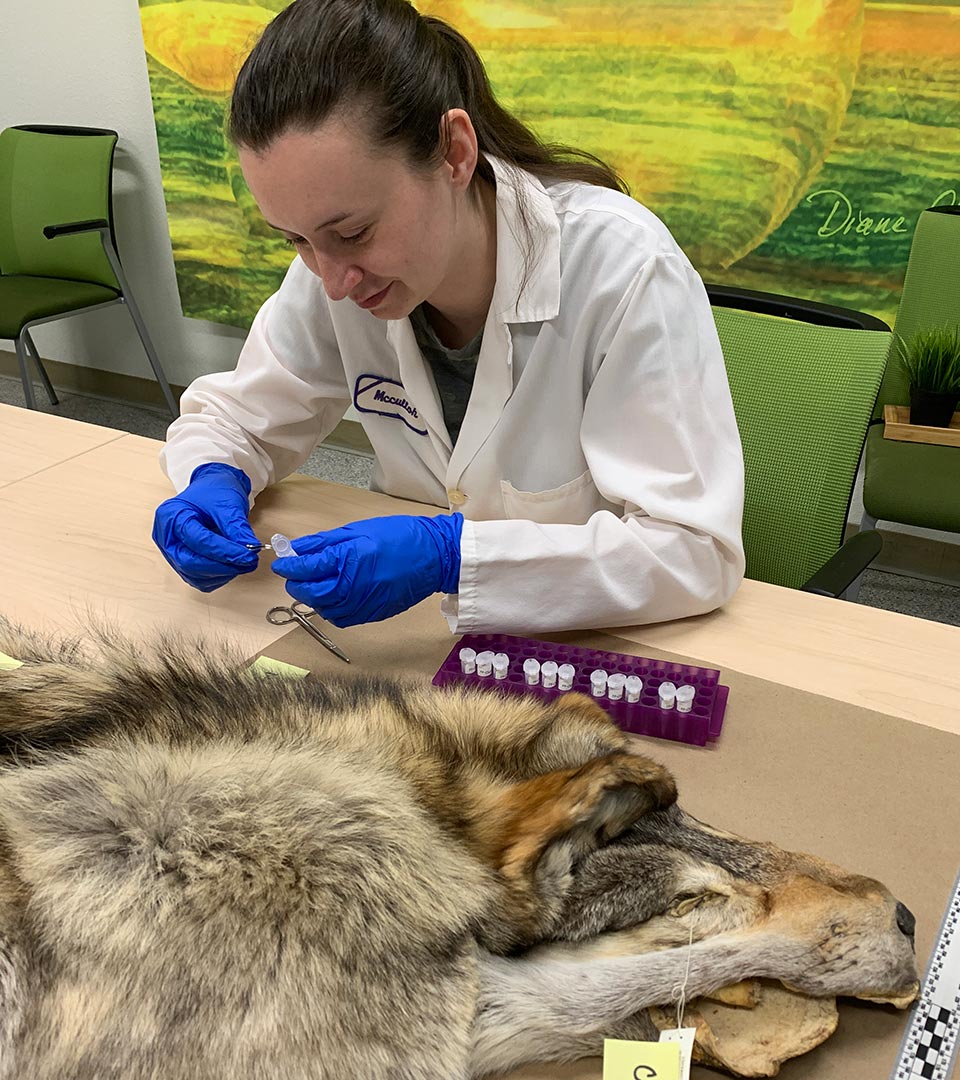Furry Forensics
UC Davis researchers are helping develop methods to identify animal furs based on protein — and help enforce California’s fur ban.
State wildlife officials could get new tools to enforce California’s fur ban thanks to a collaboration between UC Davis researchers and forensic scientists at the state Department of Fish and Wildlife.
Assembly Bill 44, which came into force on Jan. 1, 2023, bans the sale or trade of fur in California, with a few exceptions: cow, sheep, goat, deer, dogs and cats. Commercial trade of skins of domestic dogs and cats is already banned by federal law.
“Wildlife trafficking is the fourth largest illegal economy worldwide,” said Ashley Spicer, senior wildlife forensic specialist with the California Department of Fish and Wildlife. California, with its large population and major ports of entry, is a major hub for the illegal trade, estimated at $2 billion in the state.

UC Davis researcher Glendon Parker cuts hair from a leopard skin.
Photo: Gregory Urquiaga/UC Davis
The problem for wildlife officers is to identify illegal furs and pelts with enough rigor to bring cases to court, Spicer said. Processing of fur and skins destroys DNA evidence, and furs may be cut into pieces, so an animal cannot be identified by appearance.
“Most of the common tools for identification don’t work,” said Glendon Parker, adjunct professor in the UC Davis Department of Environmental Toxicology.
Parker’s lab at UC Davis specializes in extracting genetic information from protein. Proteins are made of chains of amino acids, each of which is coded for in DNA. So, it is possible both to compare the amino acid sequences of proteins, and to work back from these to the DNA sequence. Proteins are also tougher and more abundant than DNA.
Parker, Spicer and Barry Baker at the National Fish and Wildlife Forensics Laboratory in Ashland, Oregon, were awarded a $500,000 grant by the National Institute of Justice (part of the U.S. Department of Justice) to develop methods to identify animal furs based on protein. It’s the first time the institute has funded a grant in wildlife forensics, Spicer said.

Sampling sites on a cheetah pelt.
Photo: Courtesy

Nicole Slattengren of the California Department of Fish and Wildlife samples a wolf pelt.
Photo: Courtesy
Paradigm shift from DNA to protein
The new project aims to shift the paradigm for species identification from DNA to protein. The team is building a reference database of fur proteins from 44 commonly trafficked species. Some of the reference samples come from the Museum of Wildlife and Fish Biology at the UC Davis Department of Wildlife, Fish and Conservation Biology.
“The UC Davis wildlife museum is a fantastic resource,” Spicer said.
The project will develop and assess tools to identify furs, including the reference database and workflows that can be used in forensic laboratories. Part of the work involves completing and annotating the genomes and proteomes (the full set of an animal’s proteins) of several species, including coyote.
“We want to develop tools that could be used by law enforcement to identify samples where they can’t otherwise identify the species,” Parker said.
Those protocols and workflows need to be reliable and validated to be implemented in forensics labs. Validated methods are essential for cases to stand up in court, Spicer said.
The techniques could be applied for samples seized during wildlife trafficking investigations, to resolve mixtures of species in a sample of furs, and to identify illegal species “laundered” in a larger sample.
The techniques could also be used in other fields beyond forensics, such as ecology and wildlife biology, identifying animals from tufts of hair. The researchers aim to make their final protocols widely available for use worldwide.
“There are many more possibilities that are very exciting for us,” Spicer said.




